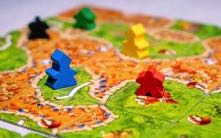 Board games give us the unique opportunity to put down our mobiles and engage with our friends and family. Whether you’re a lover of classic games like Uno or Monopoly or like more challenging games, such as Risk or Catan, there are plenty of board games out there. If your kids are not keen on the idea of “losing” and are put off games for this reason, why not consider a cooperative board game where everyone works together to achieve a common goal? Be sure to check out all the different categories of board games in our buying guide below and check back here in November for some great Black Friday deals!
Board games give us the unique opportunity to put down our mobiles and engage with our friends and family. Whether you’re a lover of classic games like Uno or Monopoly or like more challenging games, such as Risk or Catan, there are plenty of board games out there. If your kids are not keen on the idea of “losing” and are put off games for this reason, why not consider a cooperative board game where everyone works together to achieve a common goal? Be sure to check out all the different categories of board games in our buying guide below and check back here in November for some great Black Friday deals!
See Also: Toys & Games | LEGO | Baby & Child
Shops With Board Game Offers
Board Games Buying Guide
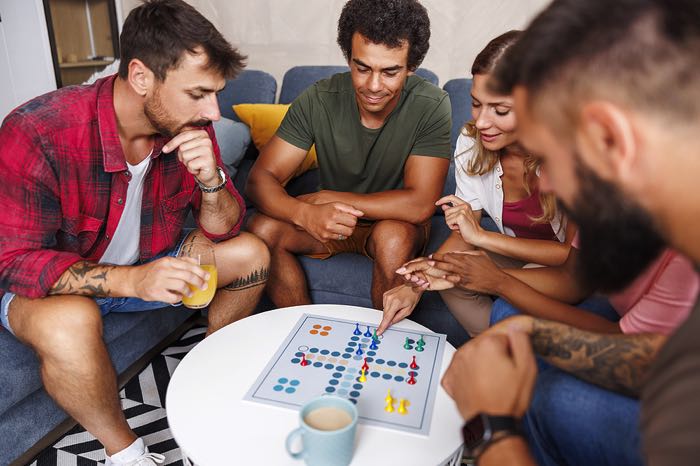
When it comes to buying presents for others, we can all afford to be a little bit more selfish every now and then. There is nothing wrong with buying your loved ones a gift that you too can take advantage of, with board games providing fun for all the family. There is the added advantage with board games that you get to encourage people, yourself included, to put the mobile phone or tablet down and focus on some real-life connections instead. The good news is that when you begin to get frustrated with the play, you can just hand the mobiles back out.
There are some board games that fit into the ‘classics’ category, perhaps those that you’ve already got two or three copies of on your shelf or ones that have been passed down to you by your parents or grand-parents. Other board games are ones that are relatively new on the scene, having been released in recent years but have quickly become hits. Regardless of what it is that you’re hoping to achieve with a board game, there will almost certainly be one that ticks the box that you’re after. Board games is one area of ‘fun’ where there is plenty of choice and loads to think about.
Board Game Categories

If you’re thinking of buying yourself a board game then one of the first things you should do is to consider which category of board game will be right for you. If you don’t know much about the world of board games then you can easily assume that they are all just one thing, but in truth they come in different shapes and sizes. Knowing which one is the right one for you can help you narrow down what it is that you’re looking for when you go shopping on Black Friday or on another day of shopping sales. Here is a look at the main categories:
Family Board Games
 One of the biggest genres of board games that you’ll be able to buy is that of the family board game. As the name suggests, these are games that are aimed at the family playing together, meaning that they are appropriate for both children and adults alike. If you’re thinking of a board game that you might be able to play come Christmas Day, for example, when grandma, kids and parents are all around the table, the family board game is the type that you’ll be wanting to get hold of. The important thing to consider is how old the children are and wether the game would be appropriate.
One of the biggest genres of board games that you’ll be able to buy is that of the family board game. As the name suggests, these are games that are aimed at the family playing together, meaning that they are appropriate for both children and adults alike. If you’re thinking of a board game that you might be able to play come Christmas Day, for example, when grandma, kids and parents are all around the table, the family board game is the type that you’ll be wanting to get hold of. The important thing to consider is how old the children are and wether the game would be appropriate.
We have all played games of Monopoly that last forever, so picking that game to try to play with a youngster that lacks patience might not be the wisest choice. Of course, there are versions of Monopoly that you can get that have been especially adapted in order to make them impatient people friendly, so you might want to think about getting one of them. There are other games that are still family friendly without the need to be buying adapted versions of them, so keep a look out for these and pick one that suits your personal needs if you can.
Party Board Games
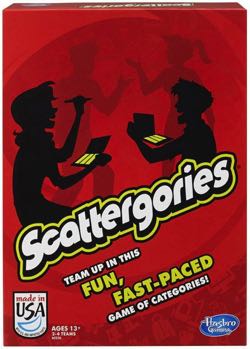 If you’re having a few people around for some drinks and would like to be able to ensure there is some organised fun to turn to, just in case the conversation stops quite quickly, then a party board game can be just the trick. That being said it depends on just how strict you are on the ‘board’ part of board games. A game like Twister, as an example, can be great fun if you’re looking to play it with the right group of people, but there isn’t actually a board involved. Similarly, Cards Against Humanity can be hilarious, but there’s no board to play it on.
If you’re having a few people around for some drinks and would like to be able to ensure there is some organised fun to turn to, just in case the conversation stops quite quickly, then a party board game can be just the trick. That being said it depends on just how strict you are on the ‘board’ part of board games. A game like Twister, as an example, can be great fun if you’re looking to play it with the right group of people, but there isn’t actually a board involved. Similarly, Cards Against Humanity can be hilarious, but there’s no board to play it on.
It is also worth considering your audience when you’re picking a party game to play. You might think it’s hilarious to make tasteless jokes about Jimmy Savile or Madeleine McCann, but if you’re playing with your grandad or your mum’s new boyfriend then they might not see the funny side. In that sort of instance, Cards Against Humanity is probably out of the question, but an alternative like Head’s Up or Scattergories might be just the ticket. Again, there are plenty of different options in the party board game genre, so pick the one that’s right for you.
Strategy Board Games
 Everyone is entertained by their own things, so you might need to think outside the box in order to entertain your son, niece or grandchild. Whilst Monopoly will work brilliantly with some people and Twister will be right up the alley of others, there are plenty of people out there who prefer a more cerebral experience. If you know someone like that then you might want to have a look for some strategy board games and see if they are the sort of thing that might tick the right box. One of the classics on that front is Risk, but there are different versions of it.
Everyone is entertained by their own things, so you might need to think outside the box in order to entertain your son, niece or grandchild. Whilst Monopoly will work brilliantly with some people and Twister will be right up the alley of others, there are plenty of people out there who prefer a more cerebral experience. If you know someone like that then you might want to have a look for some strategy board games and see if they are the sort of thing that might tick the right box. One of the classics on that front is Risk, but there are different versions of it.
It has become commonplace to find games that tap into the cultural zeitgeist of the time, so you can, for example, buy Risk: Game of Thrones. Other strategy board games range from the classic game of chess through to the likes of Oath: Chronicles of Empire & Exile. If you can find out the sort of thing that the person that you’re hoping to play the game with enjoys then there’s a good chance that you will be able to find a board game that has a theme they’re likely to want to play. Getting someone interested in playing is half the battle when it comes to board games, after all.
Quiz Board Games
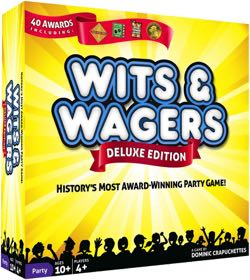 If it is a cerebral experience that you’re after but you don’t think that a strategy board game is quite right, the other thing that you can consider is a board game that will test the intellect of the players. Games such as Trivial Pursuit have been around for years but are constantly updated in order to ensure that they are up-to-date. For some, Trivial Pursuit might be a little bit old fashioned, but there are plenty of alternatives that still offer plenty of fun to the players. Linkee is an example of just such a game, requiring you to find the link between answers.
If it is a cerebral experience that you’re after but you don’t think that a strategy board game is quite right, the other thing that you can consider is a board game that will test the intellect of the players. Games such as Trivial Pursuit have been around for years but are constantly updated in order to ensure that they are up-to-date. For some, Trivial Pursuit might be a little bit old fashioned, but there are plenty of alternatives that still offer plenty of fun to the players. Linkee is an example of just such a game, requiring you to find the link between answers.
There are also games like Shot in the Dark, which are designed for few people to actually know the answer. The idea behind that game is that you can have a guess about the answer, with the person who gets closest being the one that wins. If you know someone who likes to have a flutter, Wits & Wagers asks you to not only answer questions but also bet on who is the most likely to be correct. If you prefer themed quiz questions, you can keep your eye out for the likes of Blockbuster, which is a quiz game all about the world of movies.
Co-Operative Board Games
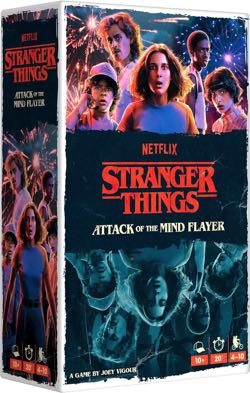 Imagine a scenario in which you have two children who are constantly fighting with one another. One of the best things that you can do is to try to find a way to get them to work together, hoping that their competitiveness will mean that they put their differences to one side in order to defeat you at a board game. If that sounds realistic then a co-operative board game might be exactly what you’re looking for, given that they are designed to see people work together in order to achieve an objective, as opposed to work against one another in order to win.
Imagine a scenario in which you have two children who are constantly fighting with one another. One of the best things that you can do is to try to find a way to get them to work together, hoping that their competitiveness will mean that they put their differences to one side in order to defeat you at a board game. If that sounds realistic then a co-operative board game might be exactly what you’re looking for, given that they are designed to see people work together in order to achieve an objective, as opposed to work against one another in order to win.
One of the classic examples of a co-operative board game is Pandemic, which felt all too real a few years ago. The likes of Stranger Things and the film Dungeons & Dragons: Honour Among Thieves has seen Dungeons & Dragons increase in popularity in recent years, which is arguably the most famous co-operative board games. The first ever co-operative board game was one called Community that was first published in 1972, whilst the likes of Sherlock Holmes: Consulting Detective have since launched and become popular offerings.
Getting the Right Board Game

Knowing which category you would like to buy a board game from is half of the battle. The next thing you’ll need to do is to figure out what you want to get out of the board game. If you know that you’re just going to be playing it with one other person, for example, then you would do well to pick a game that is aimed at being a two-player one. The likes of Battleship is a quintessential example of a two-person board game, whilst the likes of chess is also a game that is aimed at two people as opposed to a big group. Group games, of course, are much tougher to play when there’s only two of you.
Once you know how many people are going to be playing, you can then look for a suitable board game. If you’re specifically planning to play your chosen board game with a large group of people, you need to make sure that your game is ok to be played in such a scenario. The likes of quiz games are ideal for that sort of thing, but don’t be surprised if someone in the group declares that they hate quizzes before being massively competitive. Think about what sort of people you’re going to be playing with and trick to pick a game that the majority of them are going to enjoy playing.
Age Appropriate Games

One of the factors that a lot of people don’t think about when it comes to board games is whether or not they are age appropriate. You might love playing Trivial Pursuit, for example, but your eight-year-old might not think it’s all that fun. Similarly, we all like to ignore the idea of our relatives getting older but granny might not be quite as capable of playing Twister as she used to be. There are plenty of games out there nowadays that are aimed specifically at the adult market, with Cards Against Humanity being the perfect example, but not ok for children.
Knowing how old the people that you’re looking to play the game with are will be one of the key factors in narrowing down your options. Young people generally don’t have the concentration levels required for a game that will take hours, whilst older people might not be massively impressed at being asked to play a game that is more typically aimed at kids. It might be funny to play a life-size version of Guess Who? with everyone you know, but getting out the board game version of it to play during a night of cheese and wine tasting might not go down too well.
On that front, there are several pieces of equipment that typically come with board games. You will often get the likes of a timer and some dice, plus pieces that are moved around the board as you play. These are all well and good if you’re playing the board game in question with a group of grown-ups, but if you’ve got a few really young children knocking about then you might well find that they pose some danger. You don’t want to lose your concentration for a moment and discover that your toddler has shoved a piece of cheese from Trivial Pursuit up their nose, after all.











